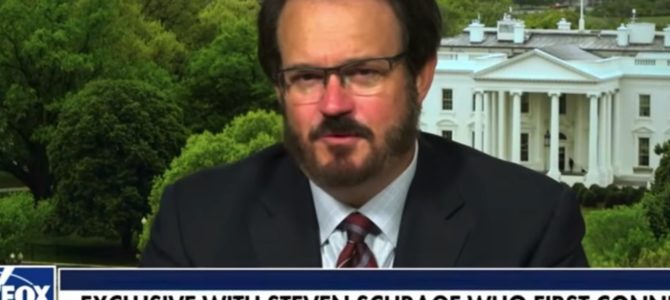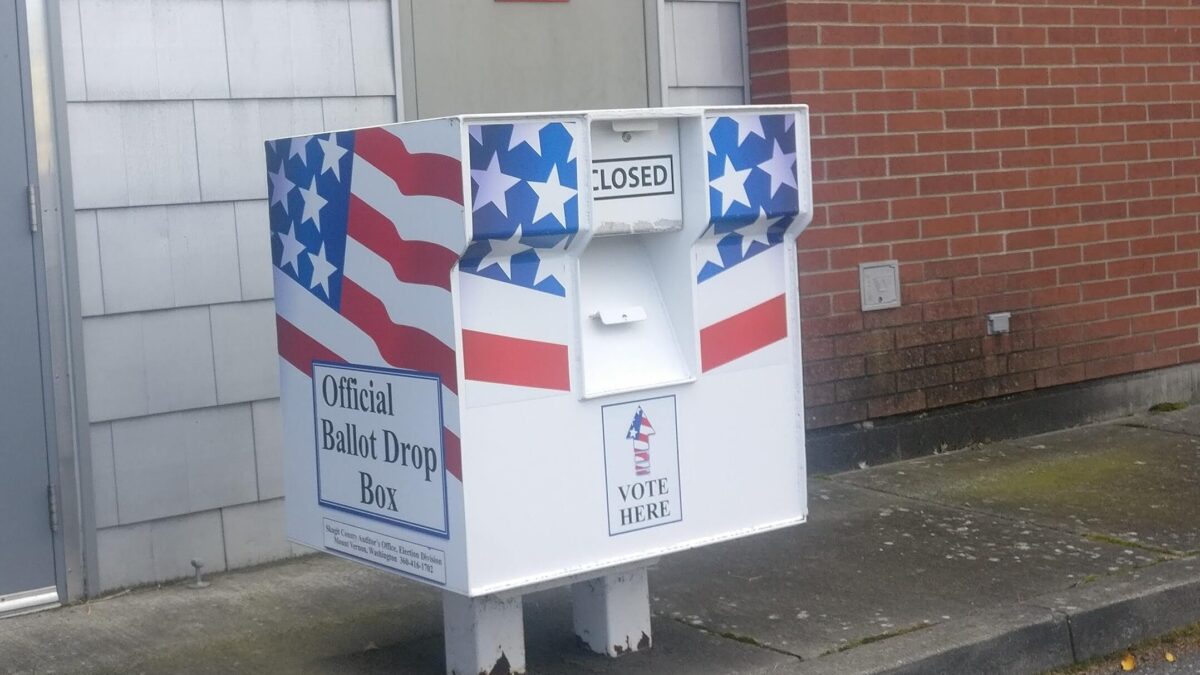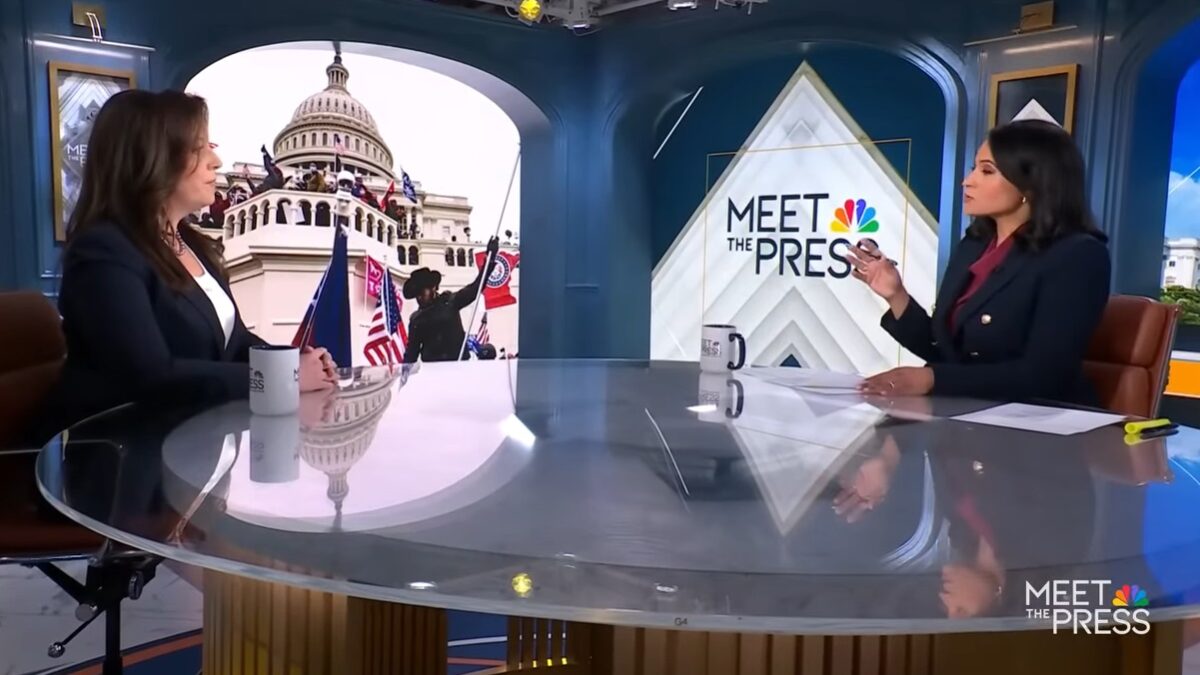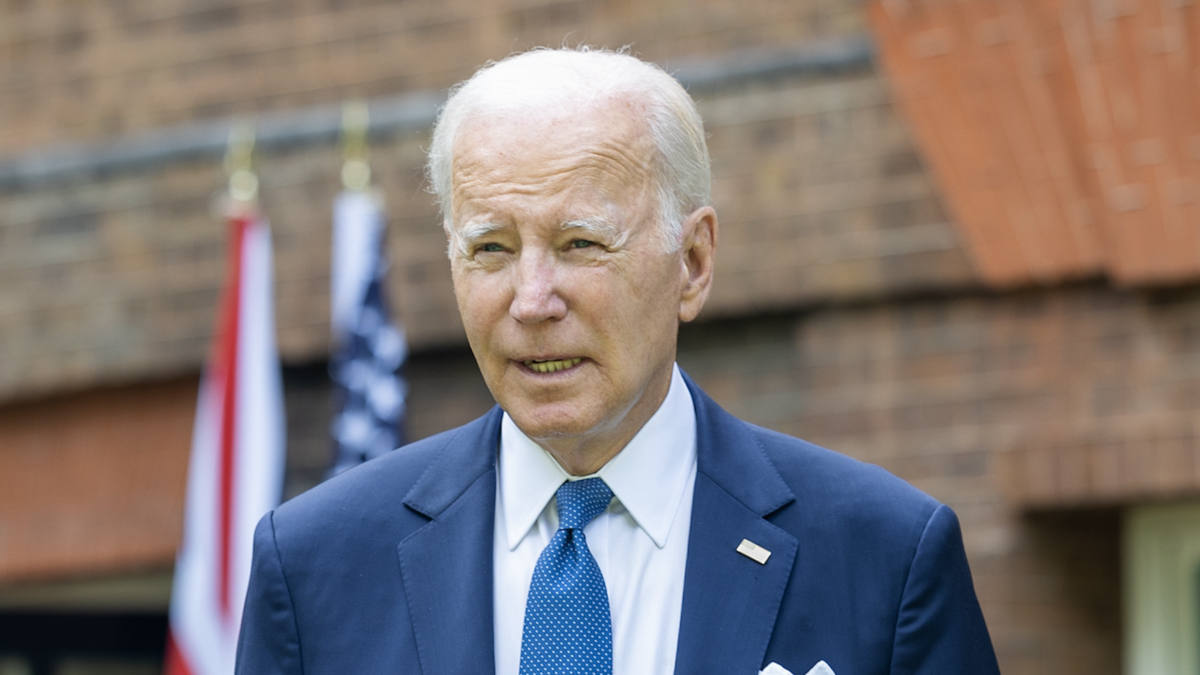
This weekend, Spygate insider Steven Schrage broke his silence.
In “The Spies Who Hijacked America” and a follow-up appearance on Maria Bartiromo’s “Sunday Morning Futures,” Schrage detailed the origins of Stefan Halper’s meeting with then-Trump advisor Carter Page. Halper would later serve as a confidential human source (CHS) for the Crossfire Hurricane probe, secretly recording multiple conversations with Page, as well as Trump advisor George Papadopoulos.
But it is what Schrage revealed about Halper’s initial non-interest in Page then Halper’s prediction on January 10, 2017, that Michael Flynn would not last long in the Trump administration that suggest significant revelations will be forthcoming from U.S. Attorney John Durham’s investigation into the origins of Spygate.
In July 2016, Schrage was finishing his Ph.D. at Cambridge University under Halper’s supervision when he invited Page to speak at a conference entitled “2016’s Race to Change the World: How the U.S. Presidential Campaign Can Reshape Global Politics and Foreign Policy.” Given Halper’s later role as a CHS in Crossfire Hurricane, many surmised that Halper sought out Page’s attendance at the conference.
But on Sunday, Schrage made clear that he, not Halper, was responsible for Page’s participation in the conference. In fact, Halper “ironically,” as Schrage wrote, “had repeatedly urged [Schrage] to cancel” the conference, which was “headlined by Presidential Candidate Hillary Clinton’s confidante Madeleine Albright.”
But Schrage did not cancel the conference. Instead, “after a 20-something Cambridge administrative official smugly told me ‘there’s no way Trump can win’ and cut our travel funding, it sent me on a mad scramble,” Schrage wrote. “I had to find someone, anyone, to fly over on a last-minute economy ticket to represent the Trump campaign,” and that is how Page crossed paths with Halper. During his interview with Bartiromo, Schrage added that he wanted a representative of the Trump campaign at the conference to provide balance.
From Schrage’s telling, then, neither he nor Halper sought out Page’s participation in the conference for a nefarious purpose. But he says things changed when former MI6 director Sir Richard Dearlove arrived toward the end of the conference.
“For most of the conference, Halper couldn’t be bothered with Page, about whom he made snarky comments about behind Page’s back,” Schrage wrote. “That all changed,” though, after Halper spoke to his “long-time collaborator,” Dearlove. Halper then “seemed desperately interested in isolating, cornering, and ingratiating himself to Page and promoting himself to the Trump campaign.”
Schrage’s statement contradicts the tale Halper told FBI agents on August 11, 2016, when they asked for his assistance in the Crossfire Hurricane investigation. According to inspector general’s report, the FBI asked Halper if he knew Papadopoulos, and after saying he didn’t, Halper “then asked whether the team had any interest in an individual named Carter Page.” “[T]he members of the investigative team ‘didn’t react because at that point we didn’t know where we were going to go with it,’” the IG report noted, but the Crossfire Hurricane team then asked Halper about how he knew Page.
According to the report, “Halper told the agents in mid-July 2016, Carter Page attended a three-day conference, during which Page had approached [Halper] and asked [Halper] to be a foreign policy advisor for the Trump campaign.” Given Halper’s connection to Page, the FBI tasked him to spy on Page as well as Papadopoulos, leading to Halper recording multiple conversations with the Trump advisor.
If Schrage’s version is accurate, Halper purposefully connected to Page and then sold that connection to the FBI to spy on him. Also, under the scenario Schrage presents, Halper did so at Dearlove’s behest. But why? What was Dearlove’s interest?
Here, Schrage’s article is a must-read synopsis of what he calls “the Cambridge Four,” which in addition to Dearlove and Halper includes Dearlove’s former MI6 underling, Christopher Steele, and the official MI5 historian turned Cambridge academic Christopher Andrew. Together, the four have fingers in several different strands of Spygate, from the spying on Page, to the invention of an affair between Flynn and the Russian-born, Cambridge Ph.D. student Svetlana Lokhova, to, of course, the Steele dossier.
Steele, we know was paid by the Clinton campaign. But what induced Dearlove, Halper, and Andrew to join in the endeavor? Was it money? Or did intelligence agencies seek out their assistance? If so, which intelligence community? While questioning Dearlove, Steele, or Andrew may prove impossible, Halper is a U.S. citizen. So why hasn’t he been hauled before Congress to explain himself?
Halper has quite a bit to explain because, in addition to grooming Page during the Cambridge conference, according to Schrage, Halper seemed amazingly prescient about the fate of Trump’s national security advisor.
In a January 10, 2017, conversation with Halper that Schrage recorded, Halper told him, “I don’t think Flynn’s going to be around long.” Halper then detailed the Machiavellian maneuvers likely to come: “The way these things work,” Halper said, was that “opponents. . . . so-called enemies” of Flynn would be “looking for ways of exerting pressure.” Flynn would be “squeezed pretty hard,” Halper suggested, and then Flynn’s “reaction to that is to blow up and get angry. He’s really f-cked. I don’t know where he goes from there. But that is his reaction. That’s why he’s so unsuitable.”
When Halper made these predictions, Flynn’s telephone calls with the Russian ambassador were not yet publicly known. Two days later, the Washington Post’s David Ignatius reported those calls after receiving a leak of classified information from a still unknown source, and set in motion the scenario that led to Flynn’s firing.
Whether Halper knew the specific “squeeze” that would be put on Flynn, in the form of a leak followed by a perjury trap sham investigation, is unclear. But that Halper saw Flynn not lasting long because “opponents” or “enemies” would seek to “exert pressure” seems strange because Halper supposedly was a Cambridge academic far removed from the D.C. scene. Even stranger is that Halper purported to know how Flynn would react, since Halper has never met Flynn.
How did Halper know any of this? Did Halper have connections in the intelligence community sharing their thoughts on Flynn? Or was Halper hearing things from David Ignatius?
Here, Schrage’s interview with Bartiromo proves enlightening. According to Schrage, Halper often bragged that Ignatius was one of his media contacts. This statement complements Lokhova’s statement to The Federalist that Halper (as well as Andrew) were connected to Ignatius.
In fact, Lokhova told The Federalist that after Halper was outed as a CIA and FBI informant in May 2018, she spoke with Ignatius, and when they spoke, she “registered surprise about Halper’s role” as a CHS. As previously reported, “that prompted Ignatius to say ‘he always found Halper reliable as a source.’ When I said, ‘Wow, he was your source,’ Ignatius hung up. We never spoke again.’”
So maybe intel was flowing two ways between Halper and Ignatius.
Schrage doesn’t know what prompted Halper’s comments, but what he does know he has shared with U.S. Attorney Durham. However, with that investigation dragging on, and Flynn’s case coming before the entire D.C. Circuit Court on Tuesday, Schrage decided to speak out now, telling what he knows.
Schrage, who alerted Durham of his plans to go public, has promised more information will be forthcoming in the days and weeks ahead. Hopefully, the same can be said of information coming from the government’s investigation into the Spygate scandal.
https://www.youtube.com/watch?v=2O1Nxx0TQWE









